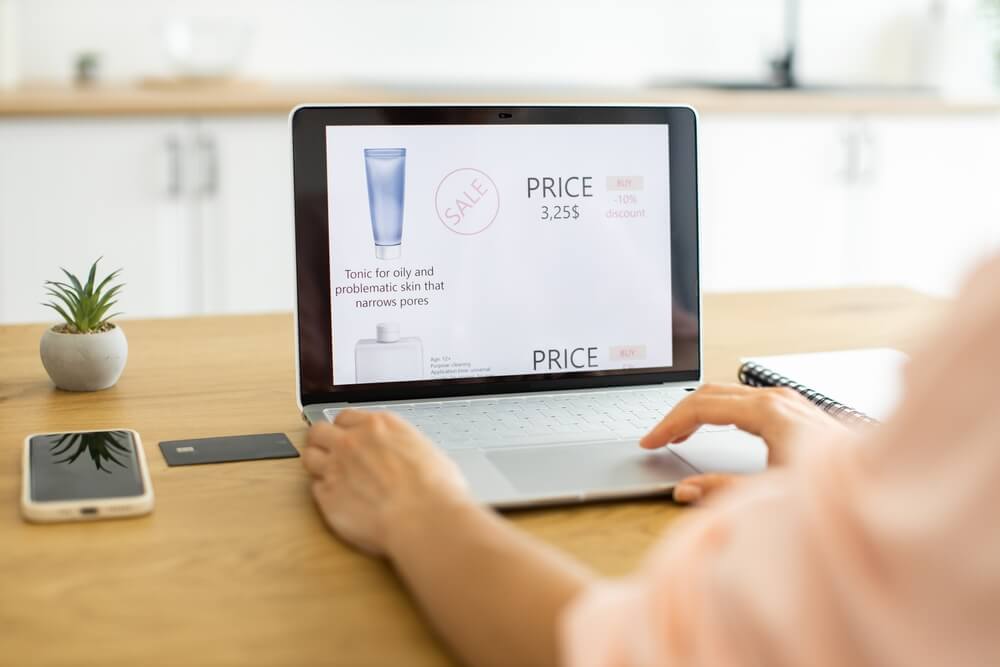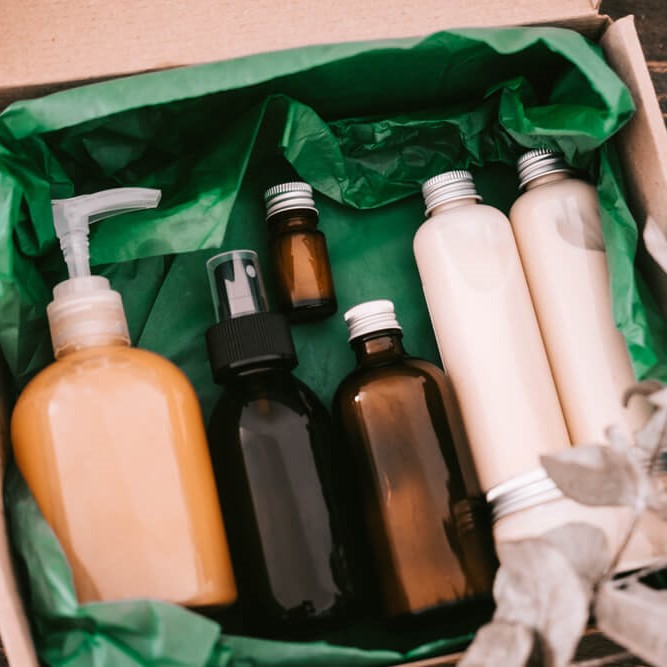While launching private label brands can be a very lucrative and streamlined way to turn your business dreams into reality, there is a lot to consider, especially if this is your first private label venture. To make sure that you don’t end up making any costly mistakes, read on as FLPL shares 12 key factors that everyone should be thinking about before launching a private label brand:
1) Market Research
While some of the points on this list are exclusive to private label brands, others, like market research, need to be taken into account for any new brand – private label or otherwise! From the products that you sell to your marketing tactics, your market research will dictate so many different aspects of your business.
Plus, you also shouldn’t choose a private label manufacturer until you’ve done some market research. Wait until you’ve identified which niche or, ideally, micro-niche you want to target so that you can then find a private label manufacturer that specializes in just that.
2) Experience and Reputation of Your Private Label Manufacturer
Choosing a private label manufacturer can be tricky – there are now quite a few out there to pick from! However, while some may woo you with glitzy ideas or cost-saving promises, always be sure to first consider their experience and reputation. Teaming up with a private label manufacturer that doesn’t score well on both of those fronts could be disastrous for your business.
Let’s use FLPL as an example. As you’ll see from our website, we’ve helped to launch a number of different beauty and wellness-related private label brands. Explore the brands we’ve worked with and you’ll be able to see exactly where our experience and specialties lie. If you’re launching private label beauty or wellness brands, partnering up with a company like FLPL would be much better than working with a manufacturer who is new to the beauty/wellness industry.
3) Product Selection
It goes without saying that product selection is one of the decisions you’ll have to make for your brand. When launching private label brands, you’ll likely have access to a variety of different product types. From skincare creams and serums to hair and nail accessories, it can sometimes be difficult to narrow down your many options.
Once again, market research comes into play here. Figure out exactly what it is that your target customers want/need, and then create products that adhere to that. If your products happen to cash in on any current trends, then that’s a bonus!
Of course, costs will also play a big role in your product range…
4) Overall Costs

Costs are one of, if not the, most important things to consider when launching private label businesses. After all, if your finances don’t add up, then this means that your business won’t be viable from the get-go.
While unexpected costs are part and parcel of launching any business, make sure that you’re aware of what you’ll be paying your private label manufacturer. The last thing that you want is to be hit with hidden fees late in the game, as these will only eat into your profit margins. Again, working with a credible private label manufacturer, like FLPL, means that all costs will be made apparent upfront.
5) Pricing Strategies
Once you’ve spent some time on your costs, you can start to think about pricing strategies. Many people assume that private label products always come with a budget-friendly price tag, but this doesn’t need to be the case. In fact, research shows that due to how many private label products now showcase innovation, quality, and superior ingredients/craftsmanship, they have no problems competing with established national brands when it comes to price.
So, don’t let the private label part of your brand sway you when it comes to pricing strategies. Pick prices that work well for your business, whether this means going high-end or keeping things affordable. Consider your profit margins, sales volumes, long-term growth, and more so that you can come up with the perfect price for each of your products.
6) Rules and Legalities
When launching any business, it’s important to familiarize yourself with the rules and legalities of your chosen industry. Each industry will have its own set of regulations that businesses need to follow, and adhering to these is a must. If you don’t, you could soon find yourself facing a lot of problems, from hefty fines to having your products excluded from shelves.
However, this is one of the big benefits of working with an experienced private label manufacturer. They’ll have all of the necessary know-how when it comes to industry regulations, meaning that you won’t need to worry about that. At FLPL, we ensure that all of the products we produce, the packaging we design, and the marketing material we create comply with industry standards so that nobody needs to worry about breaking any rules.
7) Quality Control
Quality control is something that people often struggle with when launching private label businesses. It goes without saying that you need your products to be of topmost quality if you want them to be able to compete in today’s marketplace. However, go with an unscrupulous private label manufacturer who is happy to cut corners to save on costs, and the quality of your goods could end up being quite dubious.
How can you ensure that quality control is up to scratch when you’re handing over the reins of the manufacturing process to someone else? By speaking to your private label manufacturer to find out more about their quality control procedures. Make sure that you’re happy with the measures that they take and don’t be afraid to ask for confirmation of quality as you make your way through the manufacturing process.
8) Brand Identity

In this day and age, it’s not enough to just have amazing products. You also need to build a solid brand. If you aren’t willing to put time and effort into branding, you’ll struggle to rake in the sales.
Establishing a clear brand identity will help you to differentiate your business from the competition. Customers should be able to instantly recognize your brand and this, coupled with a strong marketing strategy, will give your profits a big boost.
A compelling brand identity will also give your products a higher perceived value. This then means that you can either charge more for them or keep your prices low so that your customers feel that they’re getting great value for their money!
9) Marketing Strategy
Branding and marketing go hand-in-hand. They should complement each other, with your marketing strategy used as an opportunity to get your brand name out there. With established brands spending a huge amount on marketing, smaller private label brands really need to keep up.
The good news? Some private label manufacturers, like FLPL, will provide branding and marketing assistance. Our team of experts can help with everything from designing your logo to managing your social media profiles to creating a show-stopping marketing campaign. You won’t have to worry about falling short in comparison to other brands when you have our knowledgeable team by your side!
10) Sales Channels
Something else to consider when launching private label brands is how you’re going to actually sell your products. Most new businesses embrace e-commerce, with this direct sales channel allowing customers to purchase products directly from you.
The only problem with this is that it can be difficult to bring traffic to your website, which is why it can be worth utilizing indirect sales channels too. Even if you don’t want to sell through a physical retailer, you have plenty of other options, such as online marketplaces and social media. In fact, when it comes to beauty products, research shows that social media has started dominating as a sales channel. Not only can people learn more about various products and trends on social platforms, but being able to purchase those products with just a couple of clicks makes the shopping experience so convenient for them. Making use of multiple sales channels will help you increase your reach and, as a result, bring in more sales.
11) Online Presence

As we discussed above, selling online is a great way to reach a wide audience. However, in order for this to work, you’ll need to really think about your online presence. This essentially brings together some of the other points we’ve already discussed, such as brand identity and marketing.
However, there’s more to it than just that. Your online presence also encompasses things like product reviews, search engine optimization, and email marketing. The more visible your brand is online, the easier it will be for customers to find you and, therefore, make a purchase. This is something else that will give you a big competitive advantage, so put plenty of thought into this!
12) Potential for Growth
While your focus may be on the present when it comes to launching private label brands, you need to look forward to the future too. Think about how you want your brand to grow over time, and make sure that your private label manufacturer is on board with this.
Sometimes, brands grow faster than their private label manufacturers can handle. You don’t want to end up turning down potential customers because your manufacturer can’t keep up with sales, so have all of the necessary conversations at the start, before you sign any contracts. At FLPL, we encourage growth and always go the extra mile to ensure that our client’s brands can expand uninhibited.
Summary
There are so many factors to consider when launching private label brands – the points that we’ve touched upon above are only the start. However, don’t forget that you’ll also be able to lean on your private label manufacturer. Find a reliable company to work with, like FLPL, and they’ll ensure that you don’t slip up in any areas so that your new brand can experience success with minimal setbacks.
Click here to contact FLPL today to find out more about our private label manufacturing services.



